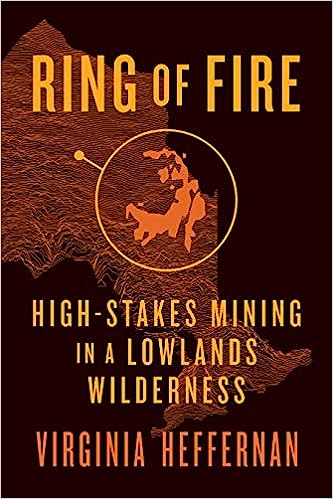Click Here to Order Book: https://amzn.to/3FVk4hK
A valuable discovery under the world’s second-largest temperate wetland and in the traditional lands of the Cree and Ojibway casts light on the growing conflict among resource development, environmental stewardship, and Indigenous rights
When prospectors discovered a gigantic crescent of metal deposits under the James Bay Lowlands of northern Canada in 2007, the find touched off a mining rush, lured a major American company to spend fortunes in the remote swamp, and forced politicians to confront their legal duty to consult Indigenous Peoples about development on their traditional territories. But the multibillion-dollar Ring of Fire was all but abandoned when stakeholders failed to reach a consensus on how to develop the cache despite years of negotiations and hundreds of millions of dollars in spending. Now plans for an all-weather road to connect the region to the highway network are reigniting the fireworks.
In this colorful tale, Virginia Heffernan draws on her bush and newsroom experiences to illustrate the complexities of resource development at a time when Indigenous rights are becoming enshrined globally. Ultimately, Heffernan strikes a hopeful note: the Ring of Fire presents an opportunity for Canada to leave behind centuries of plunder and set the global standard for responsible development of minerals critical to the green energy revolution.
EXCERPT: Ring of Fire – Transformative Changes For First Nations Embracing Mining Development – by Virginia Heffernan
If you journey north from the coastal communities of Moose Factory and Attawapiskat, hugging the curvaceous eastern shoreline of James and then Hudson Bay, you eventually reach the inlet that leads to the hamlet of Baker Lake in Nunavut. It’s the geographic centre of Canada. Baker Lake has been transformed by gold mining over the past decade.























